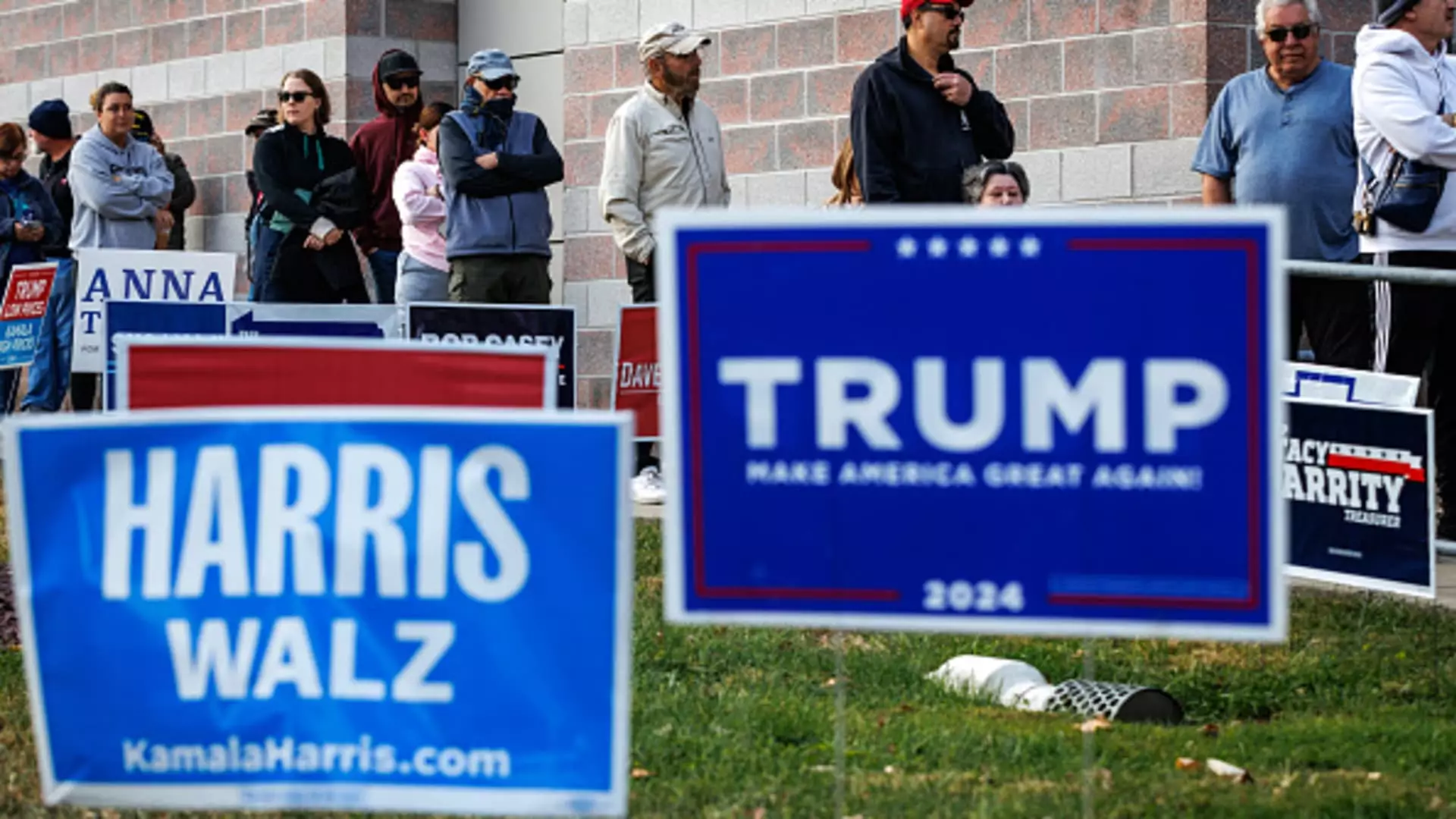Recent polling from the AARP sheds light on the economic landscape as perceived by voters aged 50 and older. The query, “Are you better off today than you were four years ago?” elicited a sobering response: 47% of these voters indicated that they feel worse off than they did previously. This sentiment resonates particularly among swing voters within the same age bracket, where a notable 55% echoed the belief that their situations have deteriorated. These statistics suggest a pervasive sense of discontent among older constituents, which could have significant implications for future electoral outcomes.
The analysis also reveals distinctions among various subgroups within the older voter demographic. The data illustrates that while President-elect Donald Trump garnered support from voters aged 50 and above, particularly winning their favor by a two-point margin, he was less successful among those aged 65 and older, where Vice President Kamala Harris edged out with a two-point advantage. This nuanced electorate clearly indicates that political alignment within this group is influenced by age-related concerns and socioeconomic issues, with younger seniors (50 to 64) showing more support for Trump than their older counterparts.
The essence of the discontent expressed by older voters stems largely from economic anxiety, particularly concerning their personal financial situations. A June AARP survey highlighted that 62% of voters aged 50 and above reported feeling worried about their economic stability. With inflation being a pervasive concern noted in the more recent polling, it’s evident that economic security has become a paramount issue for this demographic. Older voters prioritize personal financial issues—including inflation, the economy, and the future of Social Security—when making electoral decisions.
Particular areas of economic distress have emerged from the polling data. Food costs have surpassed other financial worries, impacting 39% of those surveyed. Beyond this, rising health care expenses—including prescription drugs—continue to burden voters, which has implications for their overall quality of life. This primacy of economic issues over other political concerns indicates a shifting landscape that candidates must navigate carefully if they wish to capture the older vote effectively.
In the landscape of economic issues, it’s vital to note how both parties are perceived regarding older voters’ concerns. While Republicans seem to take the lead on most financial issues, Democrats maintain a firm footing, particularly on matters concerning Social Security. The polling suggests a growing uncertainty regarding party loyalty on this front, as Republicans were found to have crept closer to winning over older voters’ trust. With Social Security traditionally viewed as a Democratic stronghold, the evolving perspectives signify a pivotal opportunity for both parties in the upcoming elections.
As discussions heat up around programs like Medicare and Social Security, it becomes clear that candidates will need to offer concrete solutions to win over older voters. The anticipated depletion of the Social Security trust fund by 2033 is not merely a statistic; it represents an urgent call to action for policymakers. Advocacy groups like Social Security Works emphasize the need for responsible governance in tackling impending financial issues facing these vital programs.
The recent AARP survey depicted that older voters, particularly swing voters, were motivated to cast their ballots primarily due to economic issues. As such concerns overshadowed discussions on non-financial topics like immigration and democracy, they illustrate how the electorate’s priorities are heavily influenced by immediate financial realities. This trend signifies the necessity for candidates to not only acknowledge these issues but also provide viable strategies for addressing them adequately.
Aligned with this line of reasoning, voters above the age of 50 have voiced unequivocal support for policies aimed at regulating prescription drug prices and facilitating aging in place. These preferences signal a broader desire for health care reform that prioritizes affordability and accessibility—themes that resonate deeply within this demographic.
The insights garnered from the AARP’s polling underscore a profound disconnect between older voters’ expectations and their current realities. The looming financial concerns, alongside their impacts on key social programs, suggest that political candidates must grapple with economic issues if they aim to resonate with this critical voting bloc. As election cycles unfold, the importance of addressing these concerns will remain paramount in shaping the political landscape for older Americans.


Leave a Reply